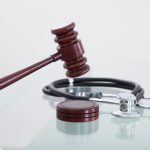A Look Back at FDA Medical Device Recalls: 2014
The U.S. Food and Drug Administration (FDA) is responsible for evaluating, approving and regulating medical devices used by doctors and hospitals around the country. The FDA groups medical devices into three classes depending on the level of risk they pose if defective. Class I products such as dental floss pose a relatively low risk to public health and do not need to be approved before they are placed on the market, although they are still subject to general controls. Class III devices are those which carry the highest risk and are therefore subject to the highest level of regulatory control. Most Class III devices must receive FDA approval before they can be marketed. These devices include items such as replacement heart valves, infusion pain pumps, and automated external defibrillators.
As part of its regulatory process, the FDA issues recalls whenever it determines a product on the market is unsafe. Product makers must then pull thousands of units from the shelves and out of hospitals, clinics and doctors’ offices, where they may already have been used on hundreds or thousands of patients.
Many recalls are listed on the FDA website as a public service. A recently-released list of recalls for 2014 is 60 items long, meaning recalls occurred on average more than once a week. And this list includes only the most serious cases where use of the product could cause serious health problems or even death. More recalls can be found by searching through the FDA Medical Device Recalls database.
Looking at the wide variety of recalls issued in 2014, it seems there were nearly as many different reasons for recalls as there were devices recalled. However, a few common device errors appear more frequently than others, such as:
- Glitches in computer software controlling devices such as heart monitors, ventilators, glucose meters and infusion pumps
- Components of devices that would tend to break off or detach during use
- Various pieces of equipment found to be improperly sterilized and possibly contaminated with microbes such as viruses, mold or bacteria
- Product labels asserting unproven medical claims
If you are concerned about medical device safety, you can stay on top of recalls as they are announced by signing up for e-mail alerts from the FDA whenever a dangerous drug or defective medical device is recalled. If you believe you were harmed by the use of a defective medical device, contact an attorney to secure your rights to compensation for your injuries. In Pensacola, Fort Walton Beach or Mobile, Alabama, contact Whibbs Stone Barnett Turner, PA for a free consultation.



